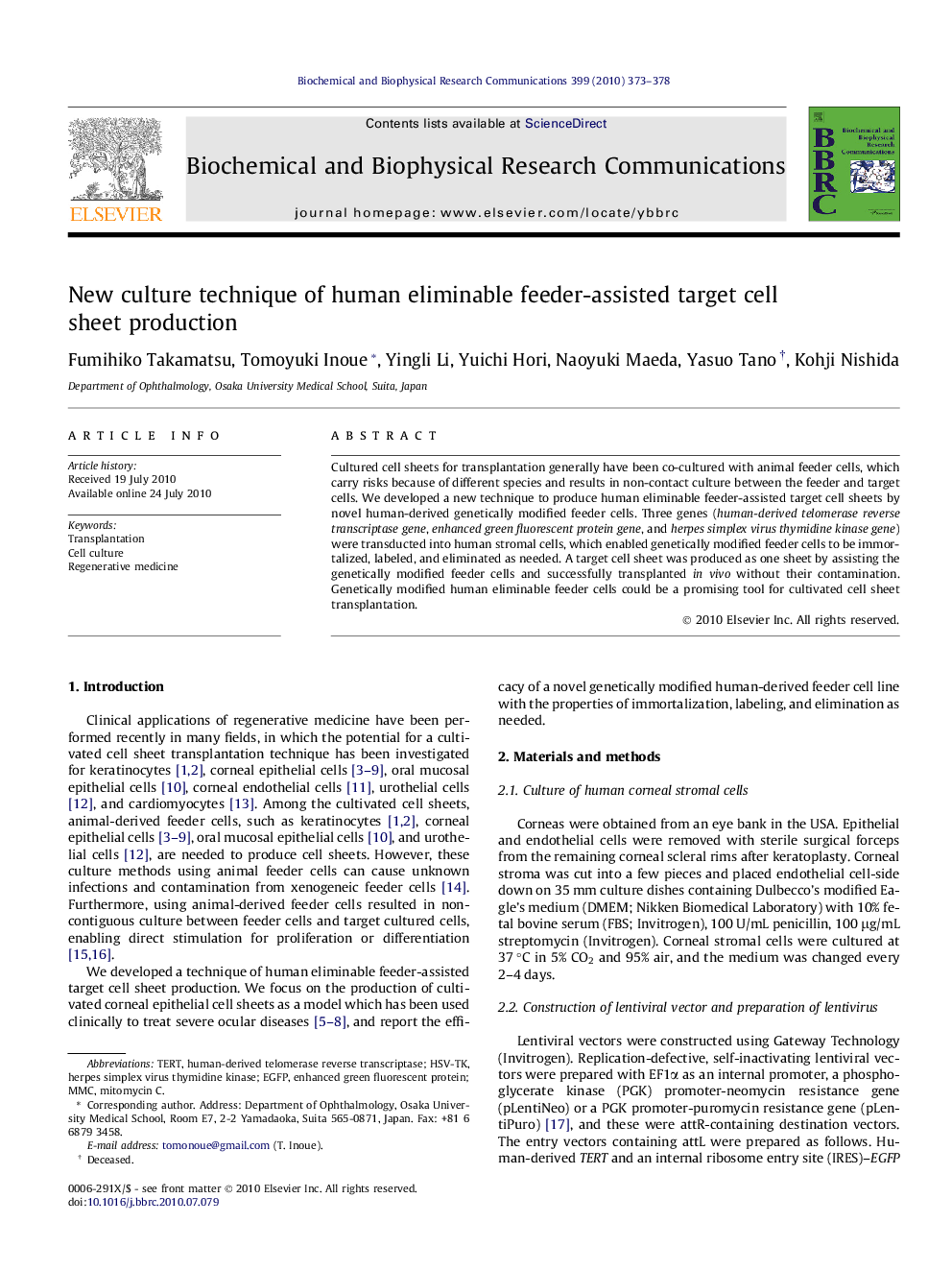| Article ID | Journal | Published Year | Pages | File Type |
|---|---|---|---|---|
| 1931607 | Biochemical and Biophysical Research Communications | 2010 | 6 Pages |
Cultured cell sheets for transplantation generally have been co-cultured with animal feeder cells, which carry risks because of different species and results in non-contact culture between the feeder and target cells. We developed a new technique to produce human eliminable feeder-assisted target cell sheets by novel human-derived genetically modified feeder cells. Three genes (human-derived telomerase reverse transcriptase gene, enhanced green fluorescent protein gene, and herpes simplex virus thymidine kinase gene) were transducted into human stromal cells, which enabled genetically modified feeder cells to be immortalized, labeled, and eliminated as needed. A target cell sheet was produced as one sheet by assisting the genetically modified feeder cells and successfully transplanted in vivo without their contamination. Genetically modified human eliminable feeder cells could be a promising tool for cultivated cell sheet transplantation.
Research highlights► We developed a new technique to produce human eliminable feeder-assisted target cell sheets. ► These feeder cells with gene modifications can be immortalized, labeled, and eliminated as needed. ► A target cell sheet was produced as one sheet and successfully transplanted in vivo.
